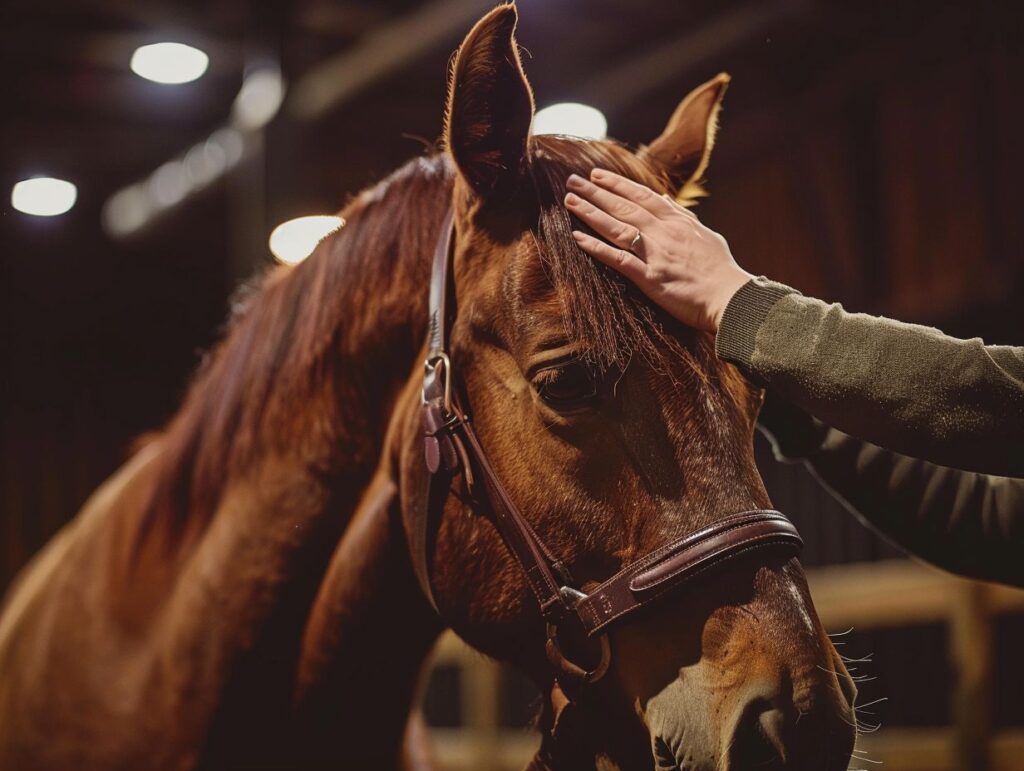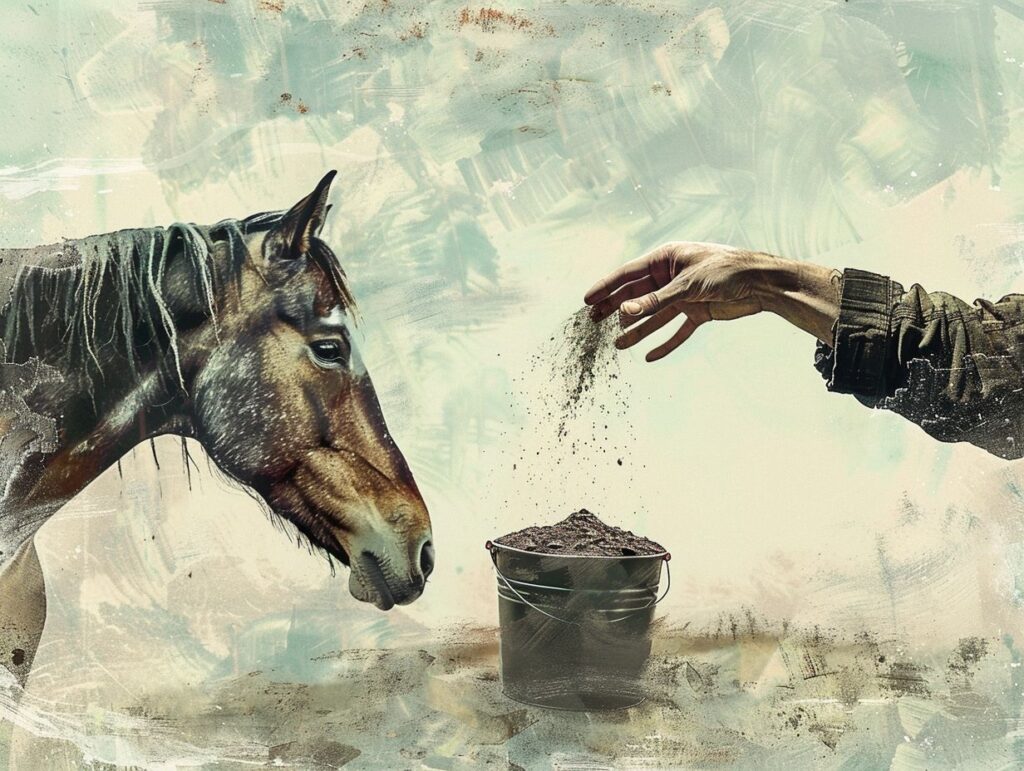As horse owners and enthusiasts, you all want your equine companions to be healthy, strong, and performing at their best.
One crucial aspect of achieving this is ensuring proper muscle recovery in horses.
In the following discussion, you will explore the importance of muscle recovery, the factors that can affect it, ways to aid in the recovery process, and methods to prevent muscle injuries.
Understanding these key components will assist in keeping your horses in optimal condition for their well-being and performance.
The Importance of Muscle Recovery in Horses
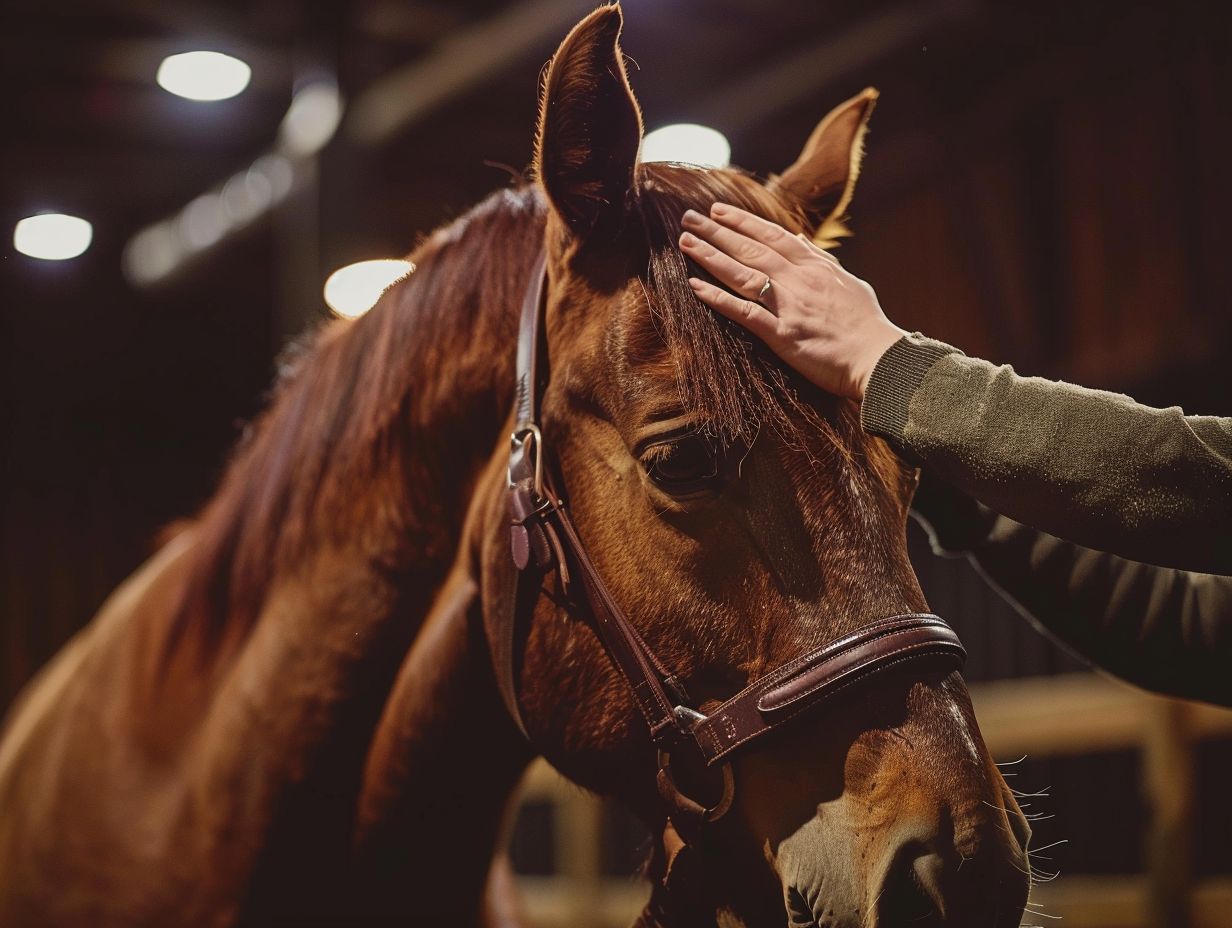
In your equine athletes’ overall well-being and performance, muscle recovery is a critical factor. Adequate muscle recovery is essential to maintain optimal health, prevent injuries, and support muscle growth and repair.
Ensuring horses have sufficient muscle recovery periods is crucial for their muscular repair and rebuilding post-strenuous exercise or competitions. Inadequate recovery may lead to muscle fatigue, soreness, and decreased performance in horses.
Implementing effective muscle recovery strategies like proper nutrition, hydration, stretching, and rest enables equine athletes to recover swiftly and perform at their peak. This process is crucial in preventing overuse injuries and allows horses to maintain their training and competition schedules without compromising their health or performance.
Understanding the Role of Muscle Recovery
Understanding the role of muscle recovery in horses involves recognizing the intricate mechanisms that govern muscle repair, growth, and overall health in equine athletes.
When horses engage in physical exercise, such as training or competing, their muscles undergo stress and micro-tears. This leads to inflammation and soreness, requiring a period of rest and recovery for the muscles to heal and grow stronger. Proper care and rehabilitation play a crucial role in this process, as they help to reduce the risk of injuries and ensure optimal performance.
Muscle recovery impacts various aspects of equine physiology, including muscle fiber regeneration, energy metabolism, and overall muscle function. Through targeted treatments such as massage, stretching, and controlled exercise routines, horse owners and trainers can support their equine partners in achieving peak muscle recovery and maintaining long-term health.
Factors Affecting Muscle Recovery in Horses
Multiple factors can influence the muscle recovery process in horses, including the intensity of exercise, the adequacy of rest periods, the quality of nutrition, the level of hydration, and the use of supplements to support muscle recovery.
Exercise plays a crucial role in stimulating muscle growth and repair in horses. It is essential to balance the intensity of workouts to prevent overtraining, which can hinder recovery. Adequate rest periods allow the muscles to recover and adapt to the demands placed on them during exercise. Nutrition is key, providing the necessary building blocks for muscle repair, while proper hydration ensures optimal function of bodily processes involved in recovery. Supplements can further support muscle recovery by supplying specific nutrients that may be lacking in the diet.
Injuries and Overexertion
Injuries and overexertion can significantly impact muscle recovery in horses, leading to muscle soreness, prolonged recovery times, and potential setbacks in performance if not managed effectively. This is particularly crucial in the context of equine sports and performance, where the physical demands on the horses are often high.
Common types of injuries that horses may encounter include strains, sprains, and muscle tears, all of which can hinder the healing process and impede muscle recovery. The effects of these injuries can be exacerbated by overexertion, putting additional strain on already compromised muscles.
Prevention strategies such as proper warm-up and cool-down routines, balanced nutrition, and appropriate exercise regimens play a vital role in reducing the risk of injuries and promoting optimal muscle recovery in horses.
Nutrition and Hydration
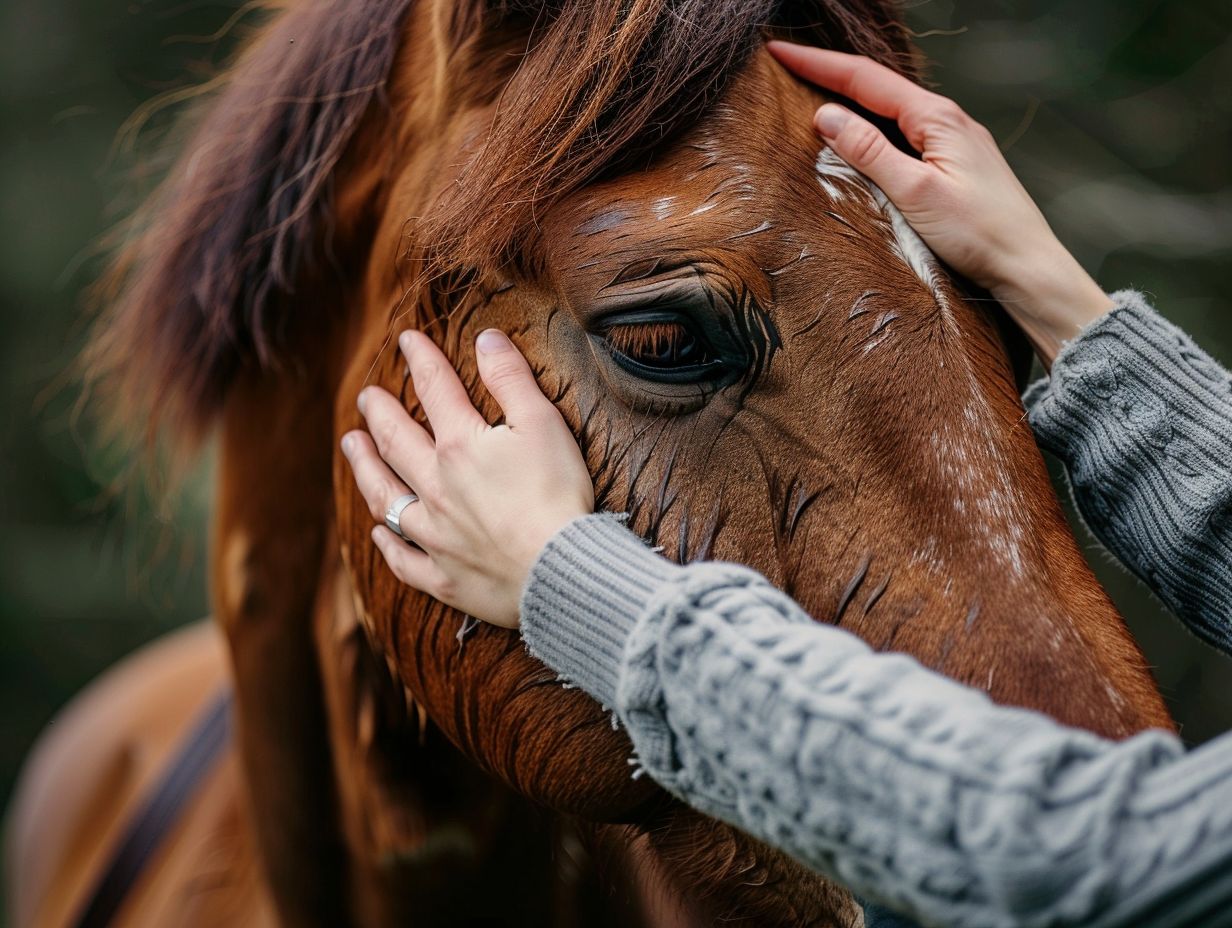
Nutrition and hydration are essential components that play a critical role in supporting muscle recovery in horses. A balanced diet rich in protein, amino acids, and hydration is vital for optimal muscle repair and growth.
For your horse, proteins serve as the building blocks of muscle tissue, facilitating repair and regeneration following intense exercise. Amino acids, known as the ‘building blocks of life,’ are essential for preserving muscle health and aiding in the recovery process.
Along with a nutrient-dense diet, certain supplements can also assist in supporting muscle recovery. Maintaining proper hydration levels is equally crucial, as dehydration can impede muscle function and slow down the repair process.
By incorporating these key elements into your horse’s diet, you can promote faster and more effective muscle recovery, thereby improving performance and overall well-being.
Ways to Aid Muscle Recovery in Horses
Implementing effective strategies to aid muscle recovery in horses is essential for ensuring proper care, facilitating rehabilitation, and optimizing the recovery process for equine athletes.
This involves a combination of specialized techniques such as massage therapy to alleviate muscle tension, hydrotherapy to reduce inflammation, and tailored exercise routines to promote gradual strength building.
Providing a balanced diet rich in essential nutrients like protein, vitamins, and minerals is crucial for supporting muscle recovery.
Regular monitoring by a skilled equine veterinarian or physiotherapist can help identify any issues early on and adjust the recovery plan accordingly.
By incorporating these practices into the daily care routine, horse owners can significantly enhance the well-being and performance of their equine companions.
Proper Exercise and Rest
Balancing proper exercise with adequate rest is crucial for promoting muscle recovery in horses. Understanding the optimal recovery time and ensuring sufficient rest periods can help prevent muscle fatigue and support the recovery process.
By including structured exercise routines tailored to the horse’s specific needs, you can enhance muscle development and overall conditioning. Introducing progressive training techniques and allowing for rest days in between rigorous sessions are key strategies to support muscle recovery. Incorporating activities like stretching exercises and turnout periods aids in maintaining flexibility and preventing stiffness. Monitoring the horse’s response to training and adjusting the workout intensity accordingly plays a significant role in preventing overexertion and promoting efficient muscle repair.
Supplements and Therapies
Utilizing supplements and therapies can be effective in supporting muscle recovery in horses. When considering ways to aid your horse’s recovery, incorporating protein, amino acids, and targeted strategies such as massage and stretching can play a crucial role in reducing inflammation and promoting optimal recovery.
By providing essential nutrients like protein and amino acids, supplements play a vital role in muscle repair and growth. Amino acids, as the building blocks of proteins, are essential for repairing damaged muscle tissues following intense exercise sessions. Additionally, therapies like massage can enhance blood circulation, aiding in the efficient delivery of nutrients to the muscles. When complemented with stretching exercises, these approaches help maintain flexibility, prevent stiffness, and enhance overall muscle function in horses.
By combining these strategies, you can significantly accelerate your horse’s recovery process post-exercise, ensuring optimal muscle health and performance.
Preventing Muscle Injuries in Horses
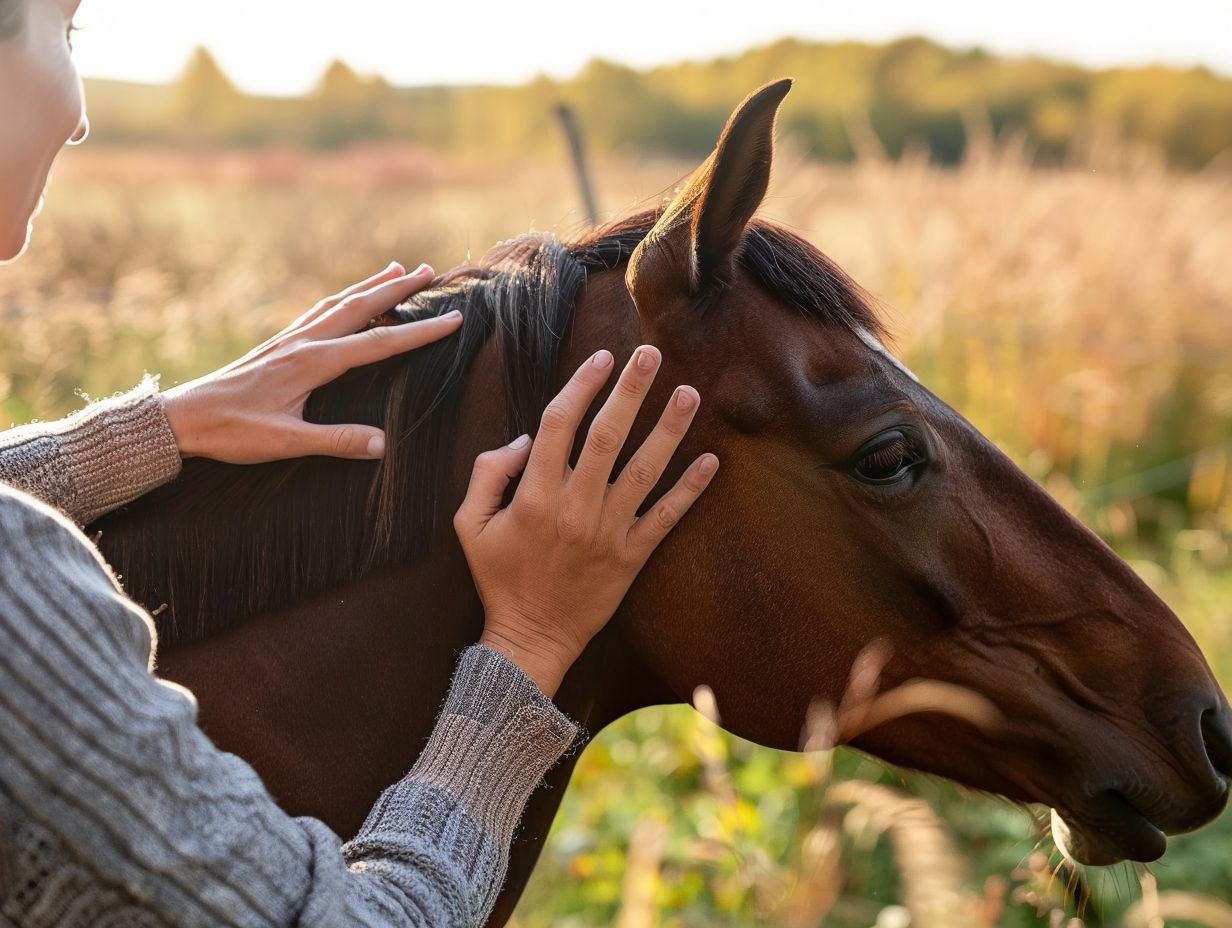
Preventing muscle injuries in horses involves a comprehensive approach that focuses on injury prevention, maintaining joint health, promoting post-exercise recovery, and implementing stress management techniques.
Ensuring that proper warm-up and cool-down routines are performed before and after training sessions can significantly reduce the risk of muscle strains in equine athletes. Incorporating regular massage therapy or acupuncture sessions can assist in muscle recovery and enhance overall flexibility. Monitoring the horse’s workload and providing adequate rest periods are essential components to prevent overtraining, which can result in muscle fatigue and increased susceptibility to injuries. By incorporating these strategies, horse owners and trainers can help protect their equine companions from potential muscle-related issues.
Proper Warm-up and Cool-down
Incorporating proper warm-up and cool-down routines is essential for supporting muscle recovery in horses. These practices not only promote muscle health but also aid in injury prevention and provide crucial support for the recovery process.
During warm-up sessions, it is important to gradually increase the horse’s heart rate and circulation, preparing the muscles for activity. This can involve light exercises such as walking or trotting to loosen the muscles and joints.
Cool-down routines, on the other hand, help the horse’s body return to a resting state and prevent stiffness. Implementing stretching exercises after a workout can also enhance flexibility and reduce the risk of muscle strain.
By incorporating these warm-up and cool-down strategies regularly, horse owners can significantly improve their equine companion’s overall fitness and well-being.
Monitoring for Signs of Overexertion
Regularly monitoring for signs of overexertion is crucial when developing an effective recovery plan for horses. By identifying early indicators of strain or fatigue, you can implement appropriate muscle recovery methods and products to support the horse’s well-being.
This proactive approach is essential for preventing serious injuries and ensuring your horse maintains optimal performance levels. Along with monitoring physical signs, it is important to observe changes in behavior such as decreased appetite or reluctance to engage in activities.
Tailoring a recovery plan that includes rest, proper nutrition, and targeted treatments like equine massage therapy or specialized muscle recovery supplements can significantly aid in the healing process. Understanding the specific needs of your horse and adapting the recovery plan accordingly is key to promoting long-term health and wellness.
Frequently Asked Questions
What helps muscle recovery in Horses?

Horses require proper nutrition, exercise, and rest to aid in muscle recovery. Additionally, other factors such as massage therapy and supplements can also play a role.
How does nutrition help with muscle recovery in Horses?
Feeding your horse a balanced diet with the right amount of protein, carbohydrates, and electrolytes is crucial in helping their muscles recover. Protein is necessary for repairing muscle tissue, while carbohydrates provide energy for the recovery process.
Why is exercise important for muscle recovery in Horses?
Regular exercise stimulates blood flow to the muscles, providing them with nutrients and oxygen needed for recovery. However, it’s important to not overwork your horse as this can lead to muscle fatigue and injury.
Can massage therapy help with muscle recovery in Horses?
Yes, massage therapy can be beneficial for horses recovering from muscle soreness or injuries. It helps to increase blood flow, reduce inflammation, and release tension in the muscles.
What supplements can aid in muscle recovery for Horses?
Supplements such as Vitamin E, Omega-3 fatty acids, and amino acids have been shown to improve muscle recovery in horses. It’s important to consult with a veterinarian before adding any supplements to your horse’s diet.
How much rest do Horses need for muscle recovery?
Horses require an adequate amount of rest for their muscles to fully recover. This includes both physical and mental rest, so it’s important to give them breaks from both exercise and stressful situations.
